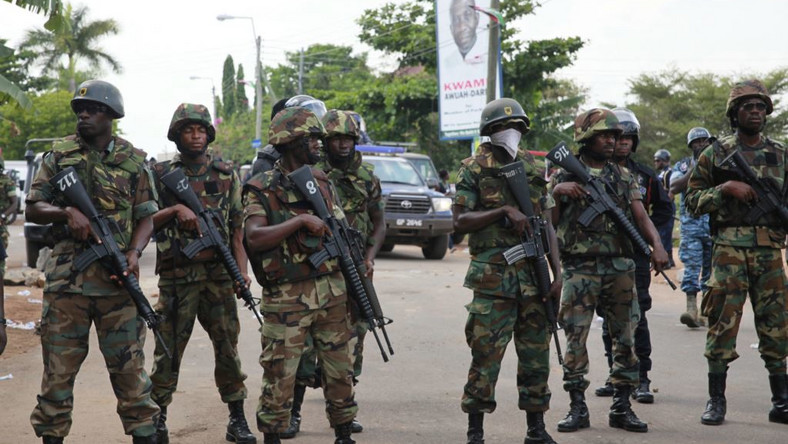
As nations across the globe remain under lockdown, more sweeping powers are being assumed by governments in the name of containing the COVID-19 pandemic. Facing demands for relief from poor barrios running out of resources under his lockdown orders, Philippine President Rodrigo Duterte threatened to shoot protesters in the streets. Particularly naming the popular organization Kadamay as planning protests, Duterte said April 1: “Remember, you leftists: You are not the government. Do not go around causing trouble and riots because I will order you detained until this COVID [outbreak ends]. I will not hesitate. My orders are to the police and military…that if there is trouble… shoot them dead. Do you understand? Dead. Instead of causing trouble, I’ll send you to the grave.” (Rappler)
The Philippine Congress, meeting virtually via a video hook-up, granted Duterte special emergency powers for a three-month period on March 24. Among other measures, the law imposes a two-month prison term and a large fine for the spreading of “false information.” Two journalists are already facing charges under the law. The cases concern reports of “unverified information” about COVID-19 deaths in Cavite City, where the mayor has also been charged. (Rappler, Rappler, CPJ, RSF, GMA, NPR)
In Serbia, President Aleksandar Vucic imposed an open-ended state of emergency on March 16, shutting down most public spaces, deploying soldiers to guard hospitals, and severely restricting the entrance of foreigners into the country. (BalkanInsight, AFP)
On March 17, a European Commission plan to close the external borders of the EU was approved by all Schengen Area member states—and now even borders within the Schengen Area, which had been open since 1995, are being shut down. The Czech Republic, Cyprus, Denmark, Hungary, Latvia, Lithuania, Poland, Slovakia and Spain have all closed their borders to foreigners. (Schengen Visa Info, EU Observer)
In Tunisia, remote-controlled wheeled robots have been deployed in the capital, patrolling the streets to accost lockdown violators. (CNet) Meanwhile in Kentucky, judges have ordered at least four COVID-19 patients to wear GPS ankle monitors for allegedly breaking self-isolation orders. (Jurist) Health authorities in South Korea are also considering the use of electronic wristbands to enforce quarantine measures. (ZDNet)
More brutal methods are being employed elsewhere. In Nigeria, five were killed April 6 when police opened fire on youths violating the lockdown order in the town of Trikania, Kaduna state. (Sahara Reporters) A local resident was also killed by police enforcing lockdown orders in Ghana on April 6. Troops reportedly opened fire after a group of young men began pelting them with stones in the marketplace at the town of Ashaiman, outside Accra. (Pulse, Ghana) On March 28, Peruvian National Police troops fired in the air to terrorize lockdown violators in Paramonga, a town north of Lima. (El Popular)
In El Salvador, where on Feb. 10 armed soldiers and police forced their way into the Legislative Assembly chamber to demand approval of emergency anti-gang legislation, the gangs have now become at least de facto collaborators with the authorities, enforcing the lockdown in poor barrios of the capital. Maras are patrolling the streets with baseball bats, ordering residents indoors. (LAT, BBC News)
Amnesty International researcher Massimo Moratti said states of emergency are allowed under international human rights law but warned that the restrictive measures should not become a “new normal.” (AP)
Photo: Pulse, Ghana





Hungary repeals emergency powers —or does it?
Hungary’s parliament voted unanimously June 16 to repeal powers granted to Prime Minister Viktor Orban to fight COVID-19. EU member states issued a statement voicing “deep concern” over the emergency measure after t passed March 30. (Jurist)
However, an analysis by the Karoly Eotvos Institute, a pro-democracy watchdog in Budapest, concluded that the new legislation had no intention of restoring Hungary’s pre-COVID legal order, “but rather creates a legal basis for the use of newer extraordinary and unlimited government powers.” (NYT)
Riots rock Belgrade
Police fired tear-gas to break up a demonstration in Serbia’s capital on a fourth night of anti-government protests originally sparked by the country’s response to the coronavirus pandemic. Clashes ensued after protesters threw firecrackers and stones at riot police guarding the parliament building in Belgrade. The rising discontent was sparked after President Aleksandar Vucic said a curfew would be imposed to stem an outbreak in the capital. The government later backtracked. (RFE/RL)